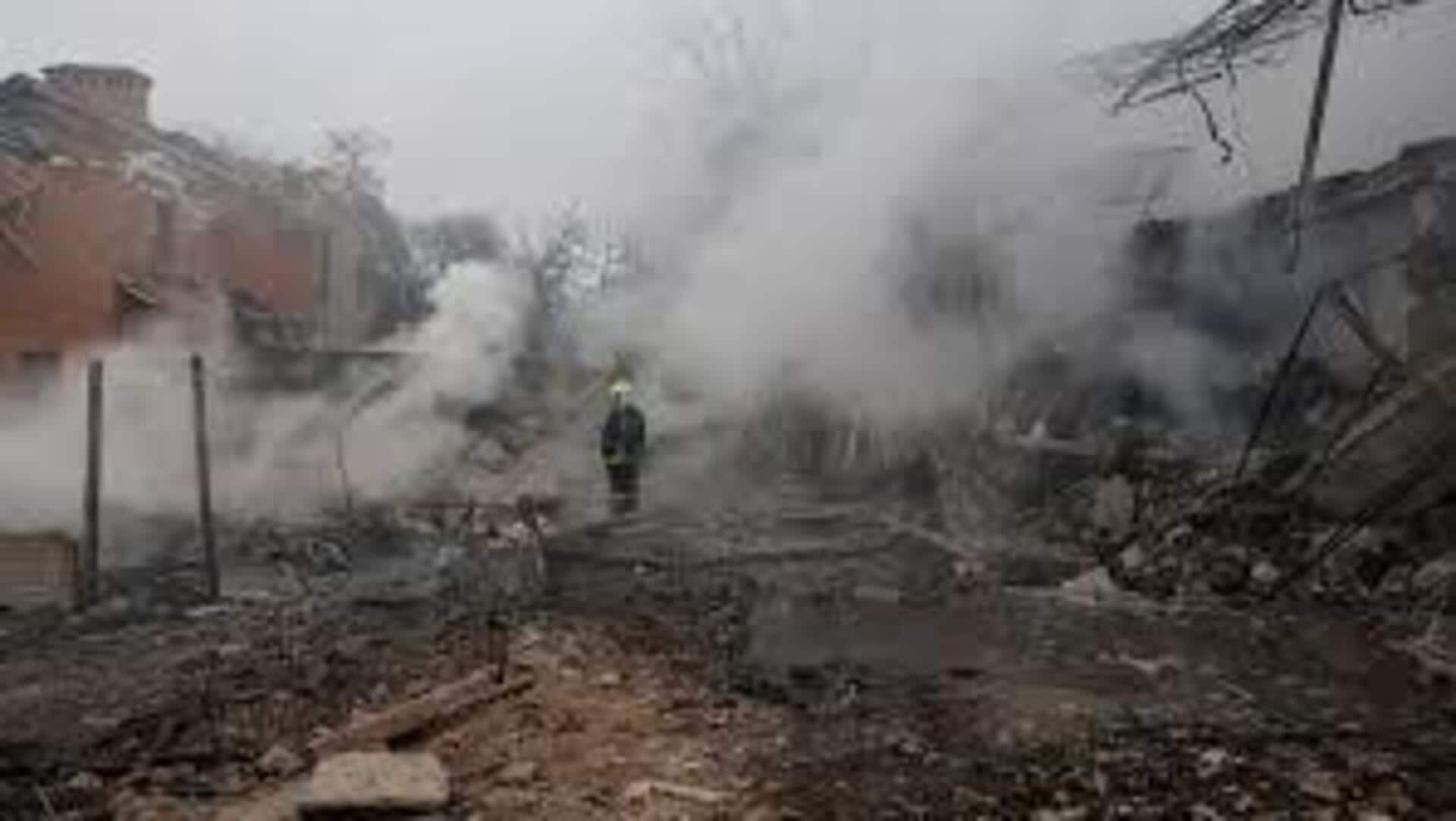
Russia recruiting young Ukrainians via Telegram to become suicide bombers
What's the story
Russian intelligence officers are allegedly recruiting young Ukrainians to carry out attacks in Ukraine, The Guardian reported. The recruits, often unaware of their true mission, are being used as unwitting suicide bombers. The Security Service of Ukraine (SBU) has reported over a dozen such incidents where the perpetrators were either injured or killed. The recruits are usually lured through Telegram channels with promises of quick cash for simple tasks like taking photos or distributing flyers.
Recruitment strategies
How the recruits are being manipulated
The SBU has identified a pattern in the recruitment process. Curators use psychological manipulation, sometimes employing threats or flattery, to draw recruits into more dangerous tasks, SBU spokesperson Artem Dekhtiarenko told The Guardian. Once on board, recruits are often blackmailed into compliance with threats of exposing their previous cooperation with the curators. This tactic was employed in a case where malware was sent to a teenage recruit's phone, threatening to leak private photos if she didn't continue cooperating.
Escalation of tactics
Shift in Russia's tactics
Initially, Russia's sabotage campaign in Ukraine involved arson attacks on military vehicles and conscription offices. However, by late 2024, the focus shifted to bombings resembling terrorist tactics. The SBU estimates over 700 people have been detained since early 2024 for involvement in sabotage or terrorism activities linked to these operations. Many are unemployed or in need of money to feed their addictions, while around a quarter are teenagers, the youngest of whom is an 11-year-old girl from the Odesa district.
Unwitting participants
Some recruits are being turned into suicide bombers
In some instances, recruits unknowingly assume the role of suicide bombers. Dekhtiarenko said, "Russians blow up their own agents; this is becoming common practice." Oleh, a 19-year-old unemployed father from eastern Ukraine, was one such recruit. He was promised $1,000 for what he thought would be a harmless task—spraying paint outside a police station in Rivne. Instead, he received a bag containing an improvised explosive device with wires and mobile phones for remote detonation.
Attack thwarted
Rivne attack likely to be repeated in another location
Oleh and his friend Serhiy were arrested before they could carry out their mission. The SBU had been surveilling them since they picked up the bomb. The black rucksack contained a homemade explosive device packed with screws and nails, while the smaller bag held a white box holding a less powerful explosive device. If it had exploded, Oleh would most likely be dead. A similar attack had occurred just three days earlier, killing the 21-year-old attacker and injuring eight soldiers.
Prevention measures
SBU launches awareness programs in schools across Ukraine
To prevent more youths from falling prey to such dangerous schemes, the SBU has launched awareness programs in schools across Ukraine. They warn children about the risks of accepting offers from strangers on Telegram. The agency has also set up a chatbot for young Ukrainians to report suspicious accounts or approaches they encounter online. European intelligence agencies are now watching closely to see if Moscow will export this tactic beyond Ukraine into Western countries.